1. Overview
In this project, we are working in collaboration with teachers in Turkey to introduce the science education content used in Japan to the curricula and daily lessons of Turkish primary and secondary education. The project aims to improve the quality of science education to foster higher-order thinking skills (analysis, synthesis, evaluation) by providing a package of education kits and teaching methods to local schools, increasing opportunities for experimentation, and promoting hypothesis-based lessons.
2. Background
Turkey is the first country in the Middle East to have industrialized successfully, and leads regional industries in the export of foods, textiles, machinery, etc. However, creating higher added-value and improving competitiveness requires the development of highly skilled human resources. School education focuses mainly on university entrance exams, but progress is also being made in initiatives to cultivate critical thinking, problemsolving, and creativity. In this project, the strengths of Japanese STEAM education will be leveraged to provide lessons that strengthen children’s cognitive skills and improve the quality of education in Turkey.
3. Progress on ‘Science Experiment Class’ packages
With the cooperation of local partners, Gakken’s science lab kit was introduced as a teaching material for the Turkish curriculum.
The manuals for eight lab kits were translated, and teaching materials were developed using local materials. These teaching materials were field-tested in our partner school, and from September 2023, they were fully implemented in the three schools described below.
(★The school system in Turkey comprises four years of Primary School, from Year 1 to Year 4 (Grades 1-4) and four years of Lower Secondary School, from Year 5 to Year 8 (Grades 5 to 8). Grade 8 students do not participate as they are preparing for Upper Secondary School entrance examinations.)
(1) ÖLel Renkli Orman Primary School, Izmir
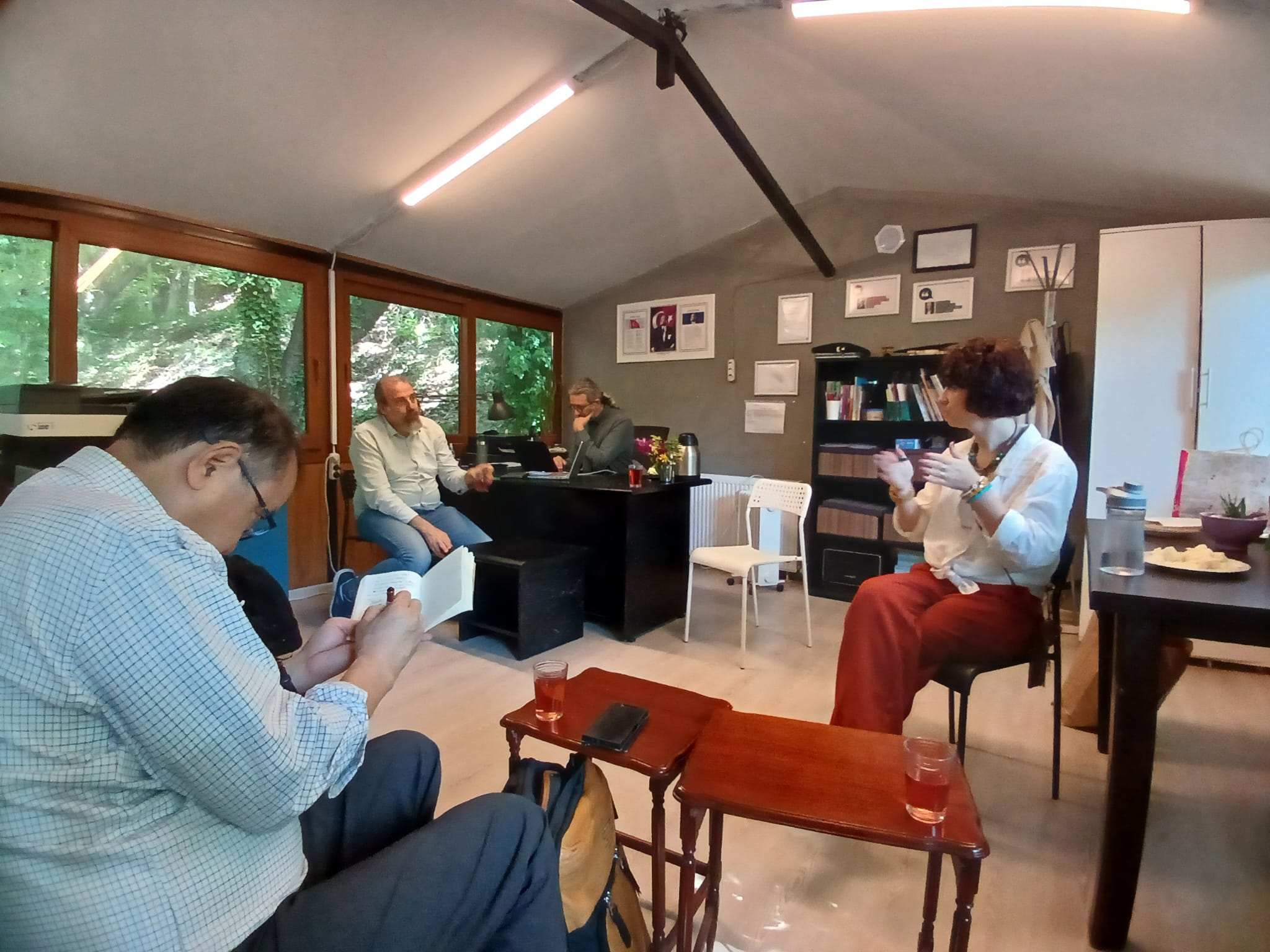
(2) Özel Yedi Renkli Çınar School, Bursa
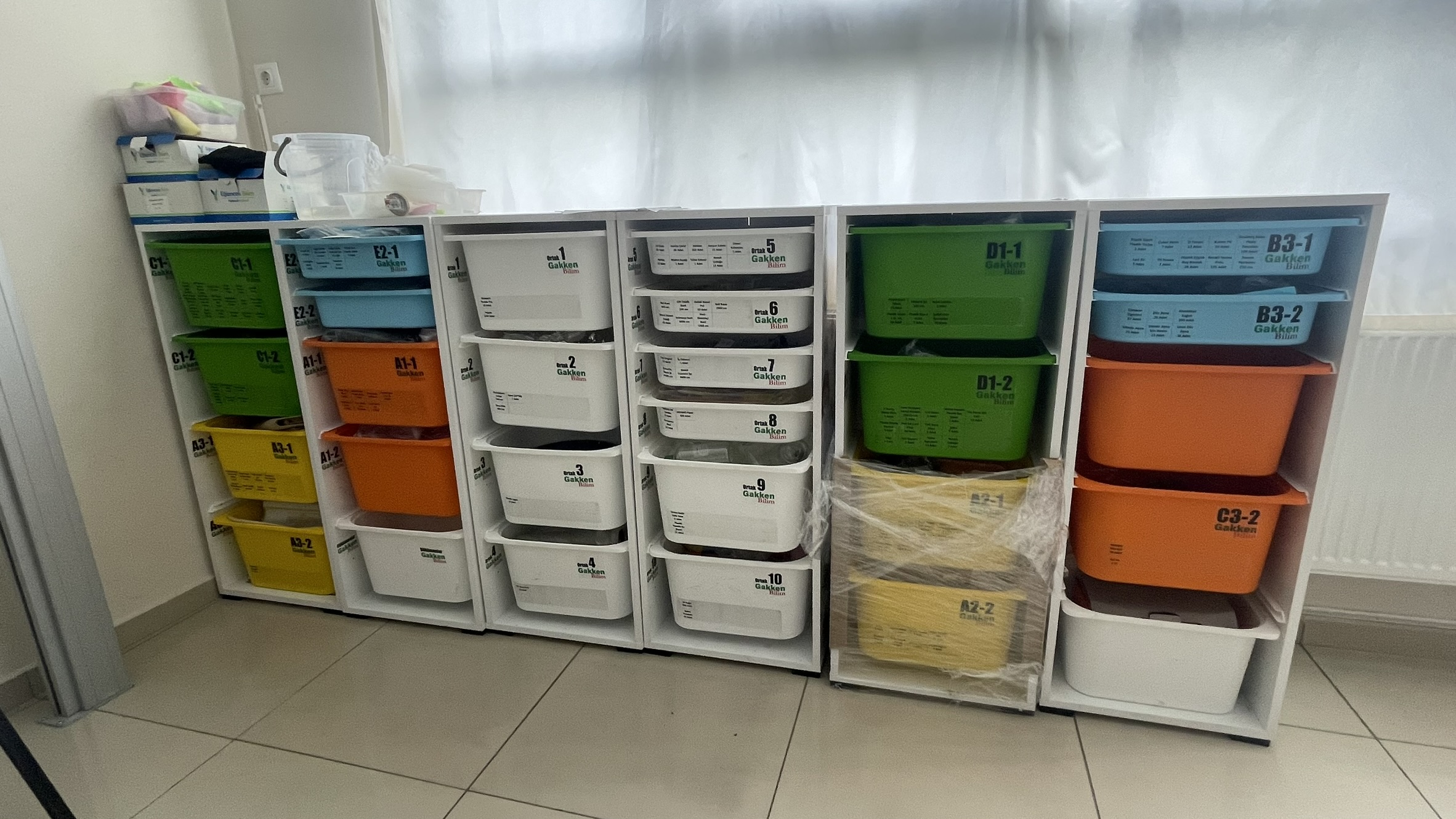
(3)Yaşam Tasarım School, Alanya
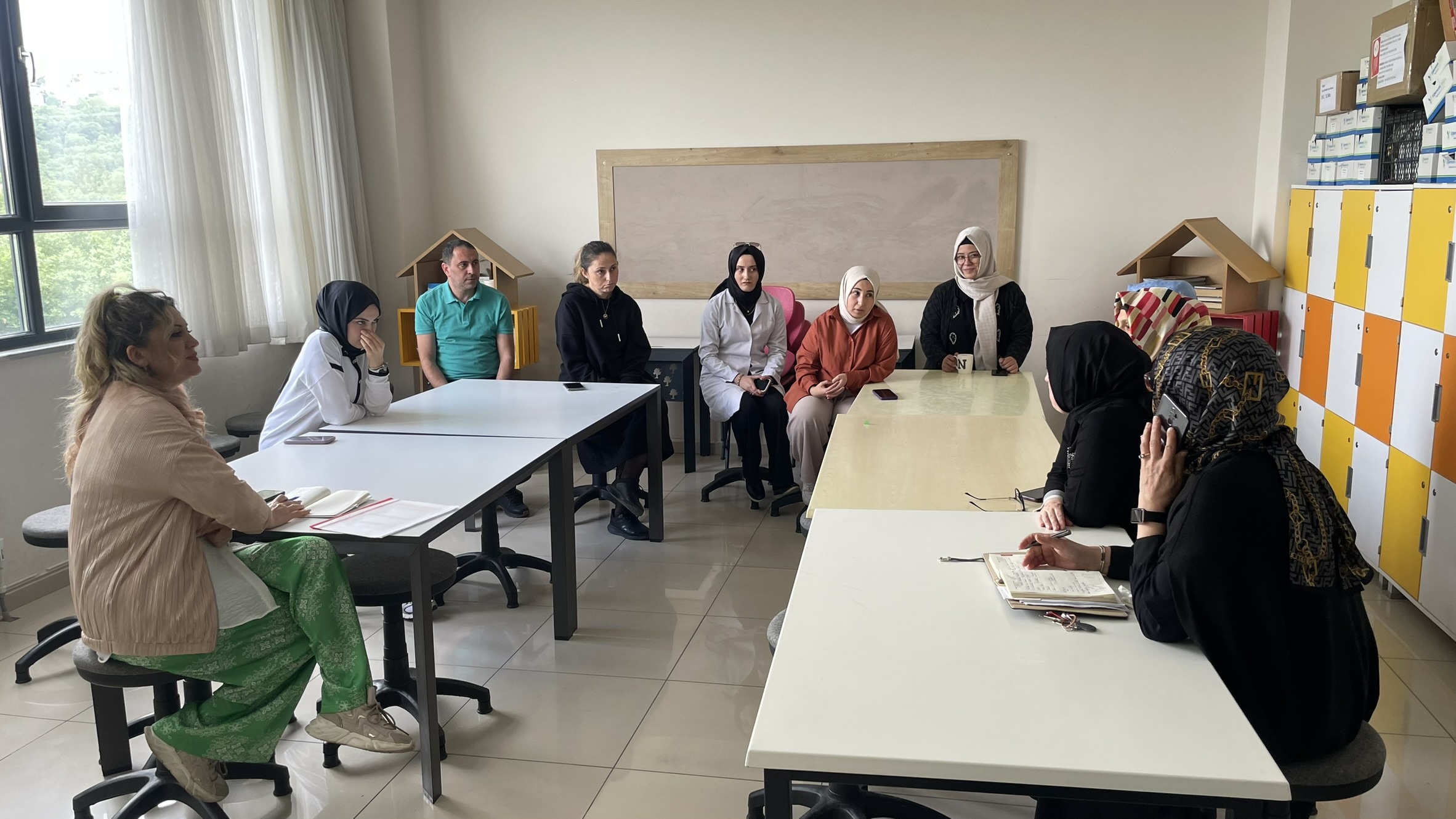
4. Science Shows
As part of our activities to promote science lab classes, IC Net is working with private schools, local governments and NGOs to hold science shows across Turkey. Even children who lost their interest in learning during the Covid-19 pandemic are now become interested in science and are enjoying it immensely. In particular, during the crisis that erupted in neighboring Syria in 2011, there was an influx of over 4 million refugees into Turkey who are now living in different parts of the country. Since 2016, IC Net Limited has been developing projects tosupportthe Syrian refugees in Turkey, and in September 2023, in collaboration with a Syrian NGO we held a science show, origami class, disaster-prevention class and other events for the refugee children.
-
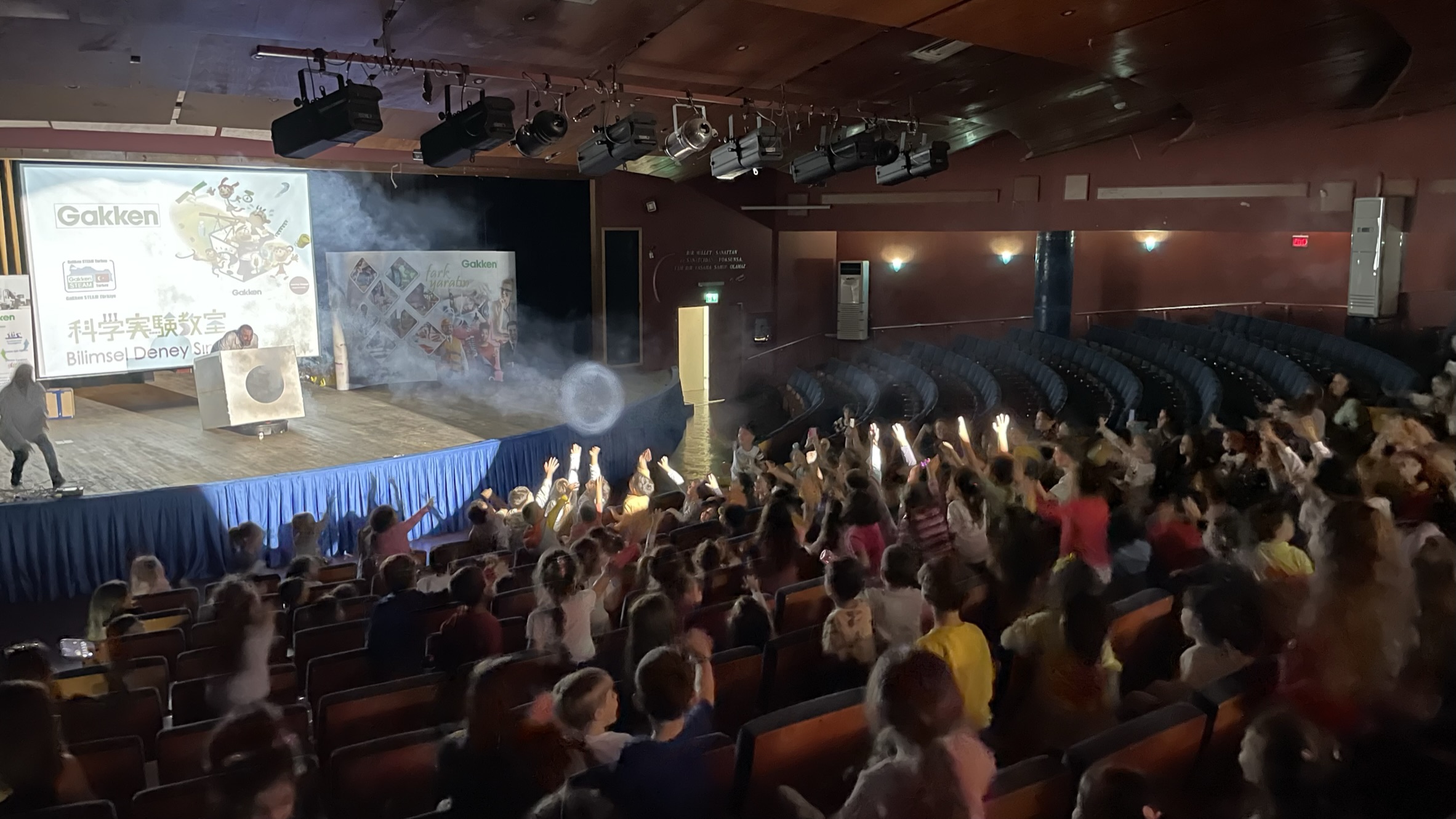 A science show for four local kindergartens, held with the cooperation of Narlıdere municipal government
A science show for four local kindergartens, held with the cooperation of Narlıdere municipal government
(Izmir, October 2022) -
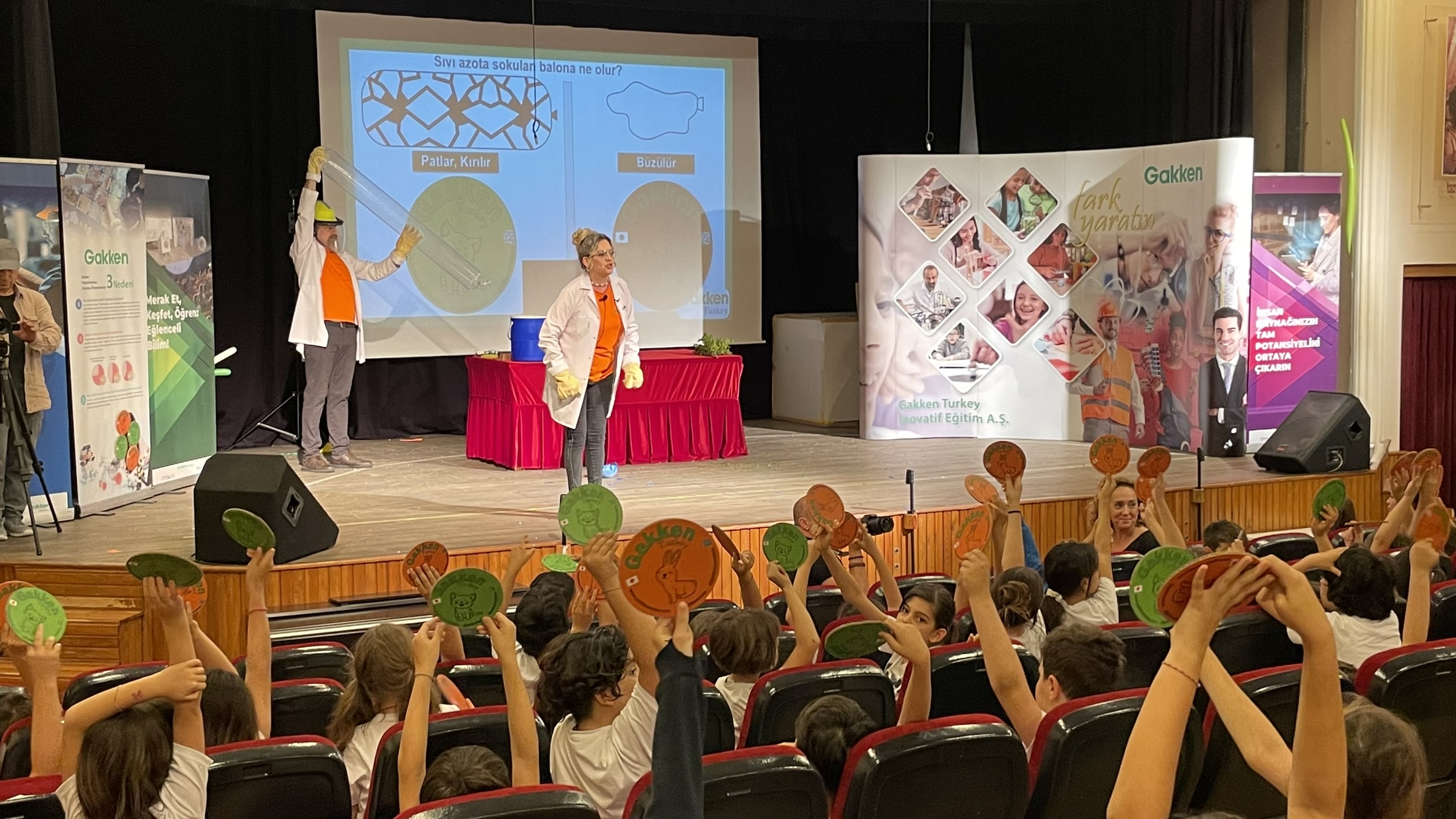 A science show held at a private school in Izmir. A quiz about experiments on air
A science show held at a private school in Izmir. A quiz about experiments on air
(Izmir, May 2024) -
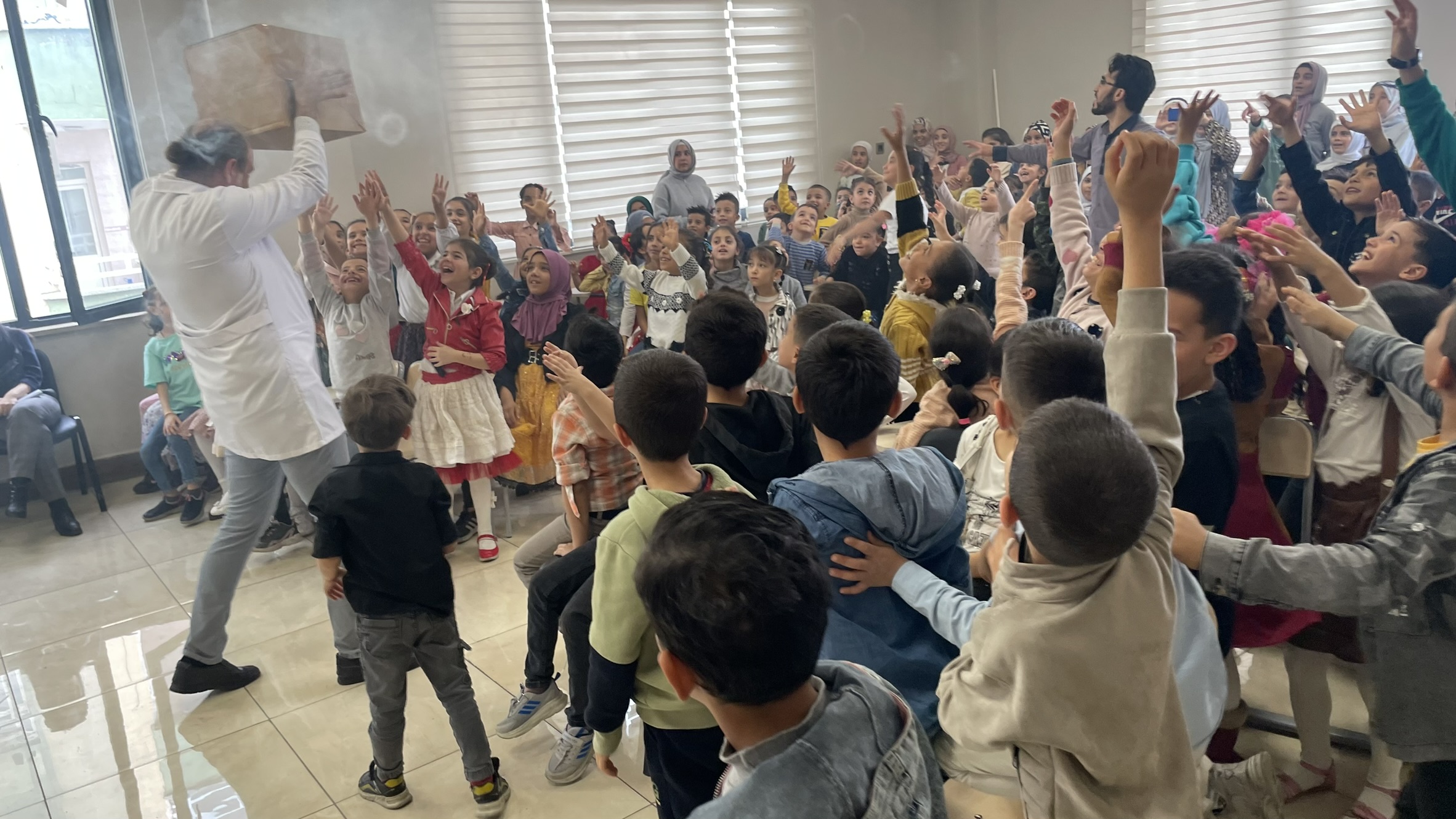 A science show held for the children of Syrian refugees with the cooperation of a Syrian NGO
A science show held for the children of Syrian refugees with the cooperation of a Syrian NGO
(Gaziantep, September 2023)
5. Disaster prevention class
On 6 February, 2023, a 7.8-magnitude earthquake struck southeastern Turkey and Syria. As Japanese companies with close ties to Turkey, IC Net and Gakken Turkey, incorporated company wanted to make a long-term contribution to aid recovery from the disaster. From July 2023 we have been entrusted by JICA with the provision of psychological care for children at youth centers in the affected areas in four south-eastern provinces (Adiyaman, Malatya, Kahramanmaras and Hatay) as well as the provision of disaster prevention education to teach how disasters occur, how to protect oneself in a disaster, and how to make the community resilient to disasters.
-
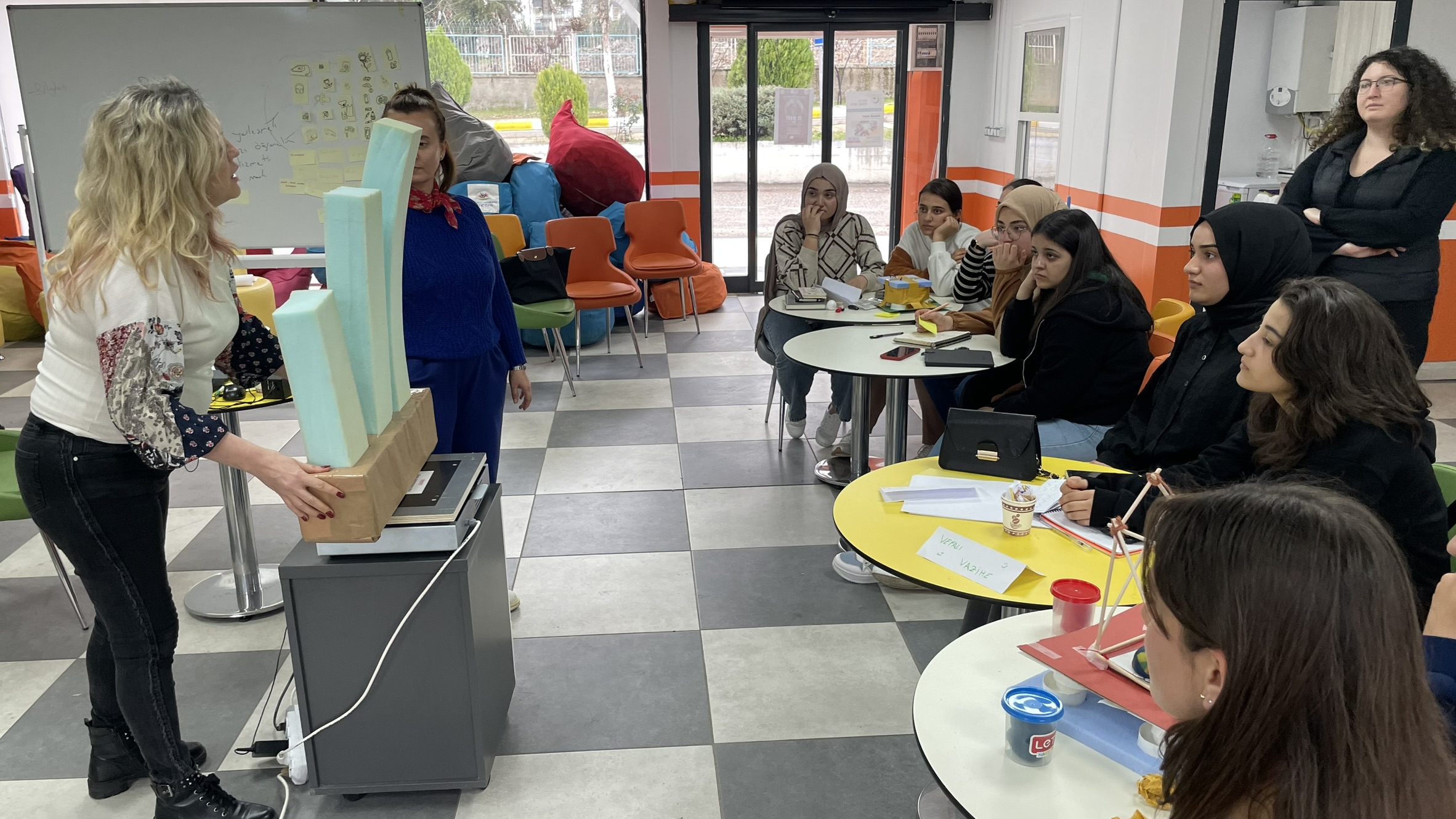 Disaster prevention class: a physical experiment to demonstrate shaking during an earthquake
Disaster prevention class: a physical experiment to demonstrate shaking during an earthquake
(Adiyaman, March 2024) -
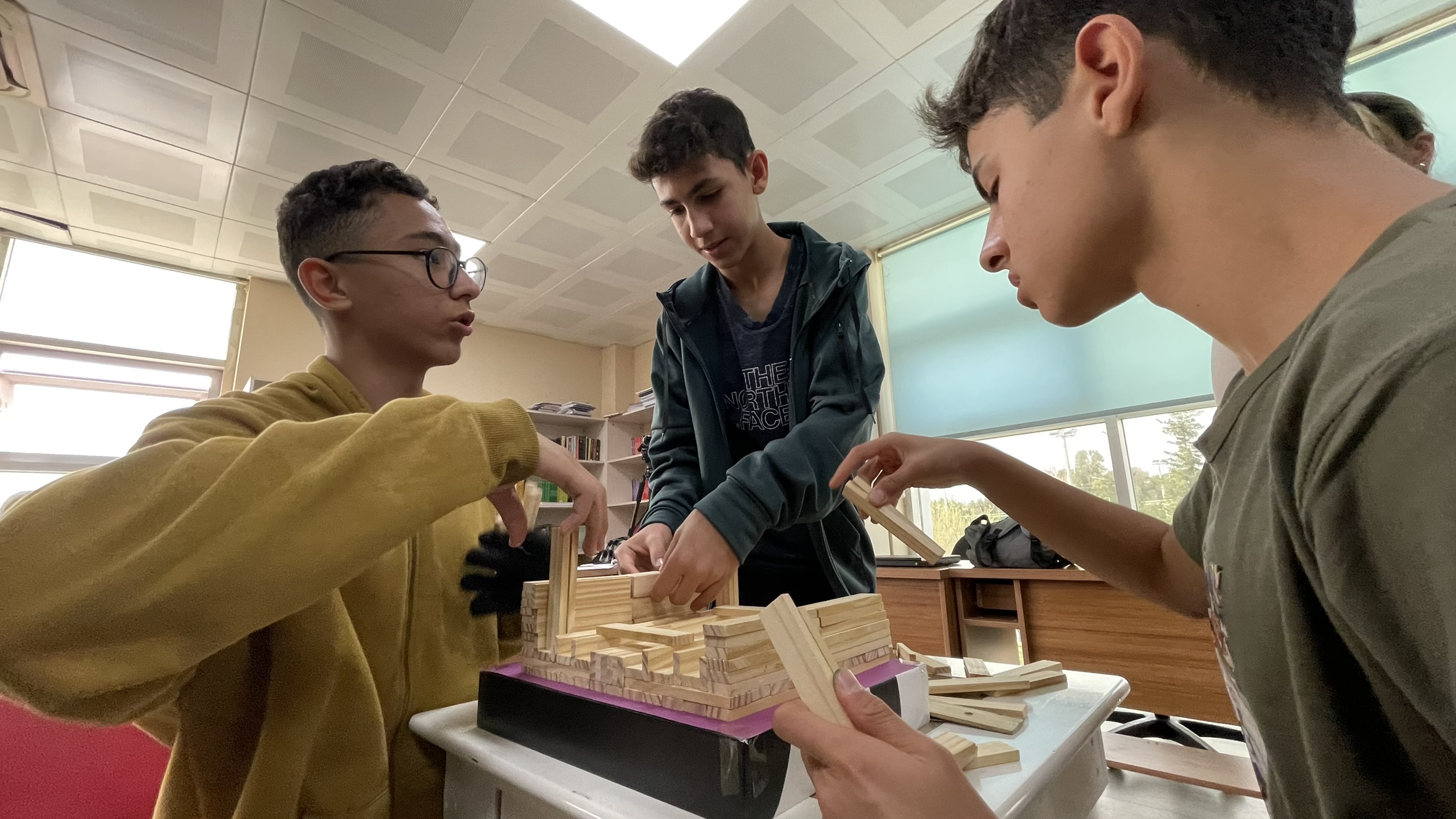 Disaster prevention class: high school students from İskenderun, Hatay devise an earthquake-resistant structure for a building
Disaster prevention class: high school students from İskenderun, Hatay devise an earthquake-resistant structure for a building
(Hatay, March 2024) -
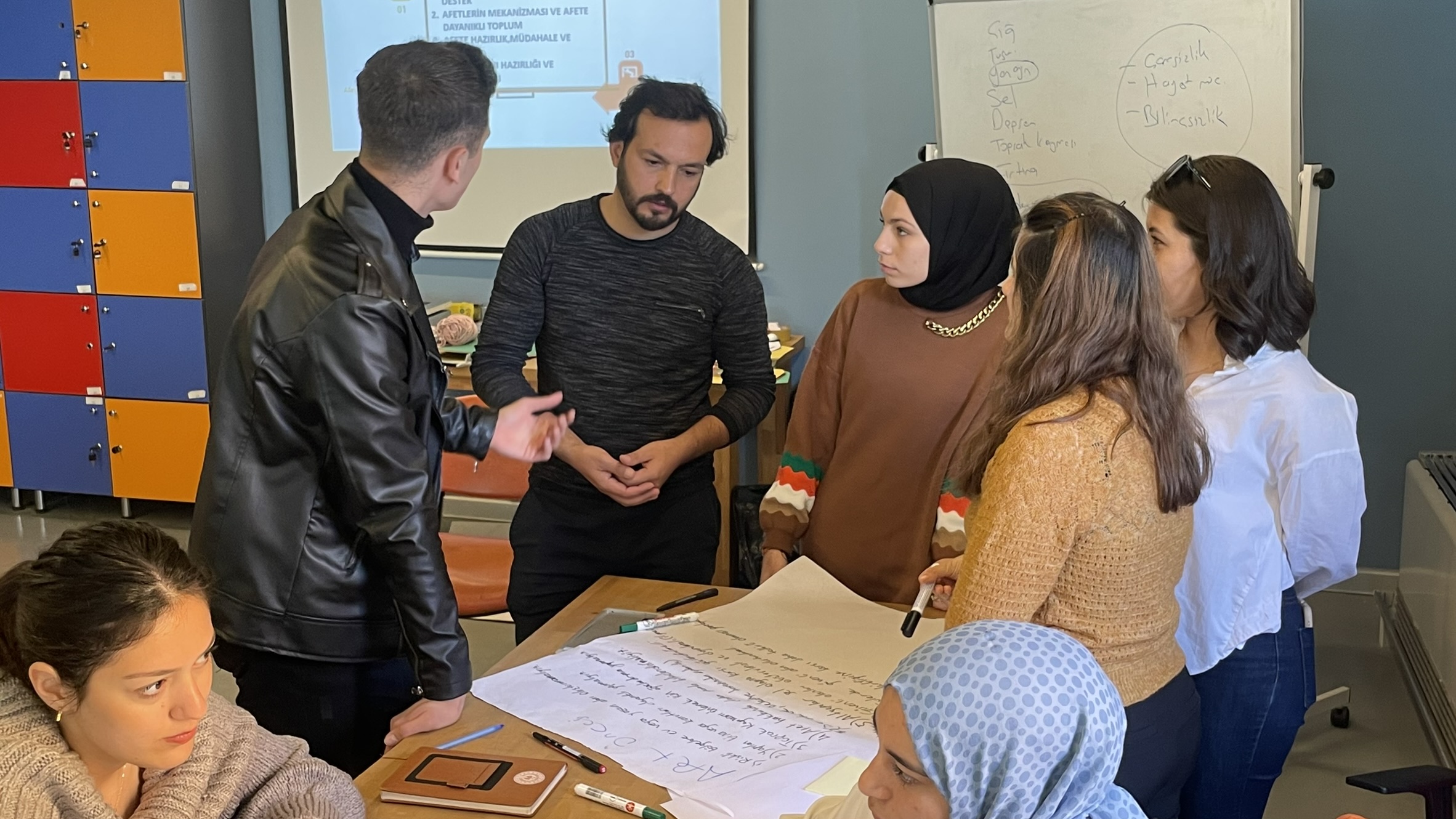 Disaster prevention class; university students from Kahramanmaras discuss action plans
Disaster prevention class; university students from Kahramanmaras discuss action plans
(Kahramanmaras, March 2024)
6. Future developments
The Turkish Ministry of National Education is in the process of revising the curriculum, and has announced that a new curriculum will be introduced from the new school year in September 2024. This revision marks a move away from the traditional emphasis on book learning to an emphasis on the developingchild’s capabilities in critical thinking, problem-solving, creativity, communication, etc. There will be a move away from the passive lecture format to classes incorporating active learning, where children learn on their own initiative, with more emphasis on discussion, project-based learning, experimentation and practical training, and an emphasis on the use of ICT in education and on STEM education. In addition, in a response to globalization, it seems that foreign language education, centering on English, will be implemented in earnest from the lower grades. Teachers will be required to move from being mere transmitters of knowledge to being facilitators of children’s learning, and to this end, teachers will be trained to improve thequality of teaching. Turkey is in the process of moving away from traditional education based on rote learning and embarking on bold educational reforms that focus on the development of 21st century skills, presumably with the aim of developing human resources to support economic development and generation of innovation.
When teaching materials for the science lab class are ordered from Japan, shipping costs and import taxes are added to the purchase price, increasing the burden on the school. For this reason, work is underway to developteaching materials and the establishment of a procurement system within Turkey. In addition, to compensate for the lack of knowledge in science among primary school teachers, work is also underway todevelopVOD (video on demand) teaching materials, as well as on accreditation forthe training and placement of visiting teachers. Efforts are being made to upskill teachers to improve to their teaching methods so that children can develop the ability to think scientifically.
We will continue to strive to improve the quality of education in Turkey while maintaining a balance between activities that meet the needs of local communities, and the sustainability of projects.







